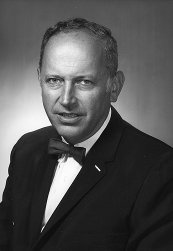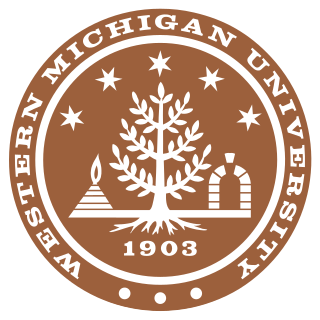The Fulbright Program, including the Fulbright–Hays Program, is one of several United States Cultural Exchange Programs whose goal is to improve intercultural relations, cultural diplomacy, and intercultural competence between the people of the United States and other countries through the exchange of persons, knowledge, and skills. It is one of the most prestigious and competitive fellowship programs in the world. Via the program, competitively-selected American citizens including students, scholars, teachers, professionals, scientists and artists may receive scholarships or grants to study, conduct research, teach, or exercise their talents abroad; and citizens of other countries may qualify to do the same in the United States of America. The program was founded by United States Senator J. William Fulbright in 1946 and is considered to be one of the most widely recognized and prestigious scholarships in the world. The program provides 8,000 grants annually.

The Michigan State University College of Law is a private law school in East Lansing, Michigan affiliated with Michigan State University. Established in 1891 as the Detroit College of Law, it was the first law school in the Detroit, Michigan area and the second in the state of Michigan. In October 2018, the college began a year-and-a-half process of becoming fully integrated into Michigan State University, changing from a private to a public law school.

Lou Anna Kimsey Simon was the 20th president of Michigan State University (MSU). Simon was appointed interim president of the university in 2003, then served as president from 2005 until her resignation in 2018 following criticism of her handling of the sexual abuse case of MSU doctor Larry Nassar. On Monday, November 26, 2018, she was arraigned in Eaton County District Court on criminal charges of having lied to law enforcement investigating the Nassar case. She currently faces two felony and two misdemeanor counts.
Alfred Wade Boykin is an American psychology professor known for his work in the field of education. He is a member of the faculty of Howard University. He has made contributions to the study of academic discrepancies between African American children and Caucasian children. Through his work at the Capstone Institute at Howard University he has created plans for implementations of educational reform.

The history of Michigan State University (MSU) dates back to 1855, when the Michigan Legislature established the Agricultural College of the State of Michigan in East Lansing, with 3 buildings, 5 faculty members and 63 male students. As the first agricultural college in the United States, the school served as a prototype for future land-grant institutions under the Morrill Act enacted during Abraham Lincoln's presidency. The school's first class graduated in 1861 right after the onset of the American Civil War. That same year, the Michigan Legislature approved a plan to allow the school to adopt a four-year curriculum and grant degrees.
Jamshed Bharucha is the inaugural Vice Chancellor of SRM University, Andhra Pradesh in Amaravati, in the newly planned capital city of the state of Andhra Pradesh in India.

Michigan State University offers over 200 academic programs at its East Lansing, Michigan campus. MSU is well known for its academic programs in education and agriculture, and the university pioneered the studies of packaging, horticulture and music therapy. MSU has one of the premier hospitality schools in the United States, and the study abroad program is the largest of any single-campus university in the nation, offering more than 300 programs in more than 60 countries on all continents, including Antarctica.

The School of Hospitality Business is an industry-specific school within the Eli Broad College of Business at Michigan State University, commonly referred to as "The School." Founded in 1927 as the nation's first business-based hotel training course, The School of Hospitality Business now has 802 undergraduate students, 22 graduate students, and 13 faculty members.

Walter Adams was an American economist and college professor. He served as the 13th President of Michigan State University and served as an expert witness before 36 congressional committees.

Melville Peter McPherson is the president of the Association of Public and Land-grant Universities. He previously served as a special assistant to President Gerald Ford, administrator of USAID under President Ronald Reagan, Deputy Secretary of the U.S. Department of Treasury, President of Michigan State University from 1993 to 2004, and Chairman of Dow Jones.
The Michigan State University College of Nursing is the nursing college at Michigan State University. It is located on the southeastern side of campus in East Lansing, Michigan, United States. The college is centered in the Life Sciences Building, adjacent to the College of Human Medicine. The dean of the school is Randolph F. R. Rasch, PhD, RN, FAANP. The College of Nursing is among the top 100 graduate nursing programs in the country, ranking at #36 in the nation according to U.S. News & World Report. The College of Nursing at Michigan State University offers a professional student environment that fosters professional and personal development of pre-nursing and nursing students. The College shares the university's research, compassion, and high-achieving educational goals. The College provides several options to become a nurse or advance your nursing education. Those include: BSN Pathways, MSN Concentrations, DNP program, PhD program and Continuing Education. According to the College of Nursing's website, “80 faculty members represent a diverse blend of leading scholars and distinguished healthcare professionals who bring real world experience to the classroom. They conduct research that helps students graduate with confidence of moving forward with careers.” As a part of their role in the College of Nursing, faculty maintains a clinical practice. According to the Faculty Practice page, the clinic believes “teaching research, practice and service must be closely integrated to achieve excellence. It is also backed by the research of MSU, education programs of the College and Michigan State University Health Team.”
Noreen M. Clark was the Myron E. Wegman Distinguished University Professor, Director of the Center for Managing Chronic Disease, Professor of Health Behavior & Health Education, and Professor of Pediatrics at the University of Michigan. From 1995-2005 she served as Dean of Public Health and Marshall H. Becker Professor of Public Health at the University of Michigan. She was interested in systems, policies and programs that promote health, prevent illness, and enable individuals to manage disease.
Angela K. Wilson is an American computational, theoretical, and physical chemist. She is currently the John A. Hannah Distinguished Professor of Chemistry in the department of chemistry of Michigan State University. Previously she was professor of computational chemistry and co-director of the Center for Advanced Scientific Computing and Modeling (CASCaM) at the University of North Texas. She was Associate Vice Provost for Faculty at the University of North Texas, where she led the Office of Faculty Success, working with ~2,400 faculty through February 2016, when she moved to Michigan State University (MSU). In March 2016, Wilson began a position as the Chemistry Division Director of the National Science Foundation, while concurrently on the MSU faculty.
Gordon L. Thomas was the mayor of East Lansing, Michigan from 1961-71. He was a Democratic candidate for delegate to a constitutional convention to rewrite the Michigan Constitution during 1961–1962 from Ingham County 2nd District.
Robert J. Marzano is an educational researcher in the United States. He has done educational research and theory on the topics of standards-based assessment, cognition, high-yield teaching strategies, and school leadership, including the development of practical programs and tools for teachers and administrators in K-12 schools.
Ronald R. Edmonds was an African-American educator, author, and pioneer of effective schools research.
Glenda T. Lappan is a professor emerita of mathematics at Michigan State University. She is known for her work in mathematics education and in particular for developing the widely used Connected Mathematics curriculum for middle school mathematics in the US.
Patricia A. Edwards, a member of the Reading Hall of Fame, is a Distinguished Professor of Language and Literacy in the Department of Teacher Education and a Senior University Outreach Fellow at Michigan State University. She is a nationally and internationally recognized expert in parent involvement, home-school-community partnerships, and multicultural, early, and family/intergenerational literacy with a focus on poor and minority children. She served on the International Literacy Association Board of Directors from 1998–2001, as the first African American President of the Literacy Research Association from 2006–2007, and as President of the International Literacy Association from 2010–2011. Edwards also served as a member of the Board of Directors for the American Educational Research Association's (AERA) Family, School, and Community Partnerships Special Interest Group (SIG) from 2014–2016 and was elected to serve as its President-Elect/President from 2016–2020.









